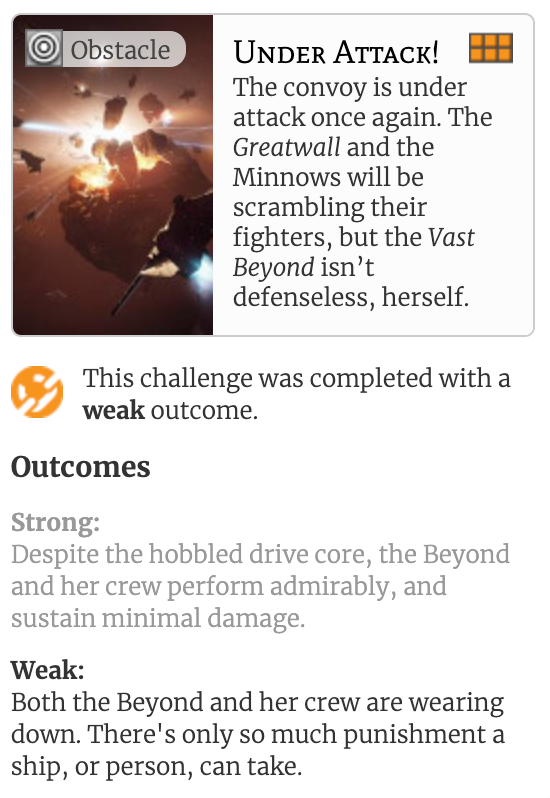@zombiegenesis said in How can we incentivize IC failure?:
Don't let failure stop forward momentum. It might redirect it but momentum should always be moving forward.
I agree with this.
While certainly there are some computer RPGs with permadeath, permaloss, or entire storylines/areas cut off by failure, that's generally not the case because most players don't find it particularly fun.
Even if you view MUs more like stories then games, temporary setbacks are a key part of fiction, but abject failure is something you don't generally see happening to the protagonists.
Failing forward is a good model in both cases.
Storium has an interesting system. There are no dice; instead characters have cards that represent strengths, weaknesses, and subplots (goals). They play them explicitly on obstacles to steer the outcome within the boundaries established by the GM. For example:

I like that there are consequences for a weak outcome, but it's not "you all die; story over". It's failing forward.
Where it gets messy is that each card can only be played a limited number of times. Sounds good in principle right? Forcing you to use your weaknesses? Incentivizing failure?
In practice it's just frustrating. I don't mind playing weakness cards where it makes sense for the story, but sometimes it just doesn't. Sometimes there's a challenge where one of your character's strengths makes perfect sense, but you're out of strength cards. Sometimes there's a challenge where you really want a weak outcome to make the story more interesting, but you can't.
Bottom line - I don't think you can systemize good storytelling. You can only encourage it by making failures not be the end of the world.

